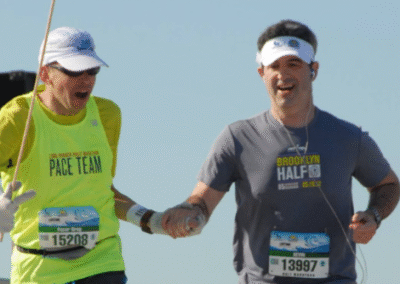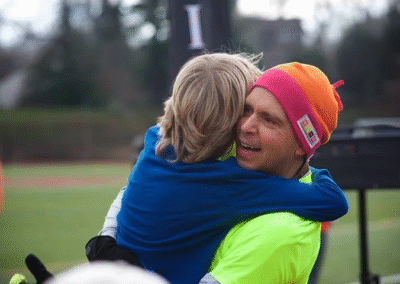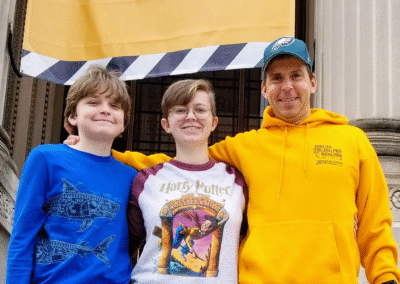About Dr. Milbourne
As a psychologist, a father, a husband, a runner, a first Gulf War era Army officer and a former country manager of an American business in Russia, I bring a varied and eclectic style to my work. Trained in marital, family, and child therapy, I have worked with clients from childhood into retirement and enjoy the diversity of seeing people at all stages of their lives and development.
My goal is to maximize happiness and reduce anxiety and the impediments to truly enjoying your life. To do so, I am happy to see individuals, couples or families, and look forward to seeing you!
Please note that the three lines in the top right corner allow you to navigate this site where you can find my intake paperwork and schedule a session. Thank you.
Insurance Coverage
I remain in Independence Blue Cross, Aetna, and Medicare.
Service Areas
Dr. Milbourne provides service to those located in all U.S. states except:
Alaska
California
Hawaii
Iowa
Louisiana
Massachusetts
Mississippi
Montana
New Mexico
New York
Oregon
South Dakota
Wyoming
Also serving Commonwealth of the Northern Mariana Islands.

About
Dr. Milbourne is a licensed psychologist specializing in work with families, couples and adults across the lifespan. From end of life issues to helping families, couples, and adults. Dr. Milbourne focuses on obtaining and maintaining good physical and mental health.
Dr. Milbourne is a licensed psychologist specializing in work with families, couples and adults across the lifespan. From veterans and first responders with anxiety, trauma and substance abuse to helping families, couples, and adults, Dr. Milbourne focuses on obtaining and maintaining good physical and mental health. Proficient in Eye Movement Desensitization and Reprocessing (EMDR) and Internal Family Systems (IFS) for trauma and anxiety, Dr. Milbourne additionally uses techniques, such as his Emotions Focused Therapy in marital and sex therapy, to expand healthy behaviors and reduce distress.
His career as a psychotherapist follows an undergraduate major in Soviet Area Studies, and five years living in Europe including two as an Army officer during the first Gulf War. Fluent in Russian, he utilizes his diverse background to bond with clients of different cultural experiences, currently providing remote trauma treatment to Ukrainian refugees of the Russian War. Dr. Milbourne has over a quarter century experience helping people overcome addictions and gain greater freedom and happiness in recovery.
Education, Licensing & Affiliations
- BA, Soviet Area Studies, Trinity College, Hartford CT
- PsyD., Clinical Psychology, Widener University, Chester, PA
- Pennsylvania Licensed Psychologist, PS 105613
- EMDR Level 2 Certified
- EFT trained
- IFS Level 1, 2 & 3 Certified
- Pennsylvania Psychological Association, Member
- Philadelphia Society for Clinical Psychologists, Member
- Swarthmore Lions Club, Member
- Race Running Pacer for Beast Pacing, Philadelphia Runner, New York Road Runners, Elite Access Pacing and MarathonPacing.com
- Guide Runner for Achilles International
Work Life Balance
Dr. Milbourne is an avid runner, marathoner, biker, swimmer, knitter and exercise enthusiast. In many races he runs as a pacer, helping others complete their own time goals, which combines running with some of the encouragement of psychotherapy. He enjoys bringing his passion for health and a healthy lifestyle to his work with clients. But his greatest pleasure is spending time with his wife, son and daughter.
Mindfulness
“Mindfulness is the energy of being aware and awake to the present. It is the continuous practice of touching life deeply in every moment. Practicing mindfulness does not require that we go anywhere different. We can practice mindfulness in our room or on our way from one place to another. We can do very much the same things we always do–walking, sitting, working, eating, talking-except we learn to do them with an awareness of what we are doing. Imagine you’re standing with a group of people, contemplating a beautiful sunrise. But while others drink in the view, you struggle.
You’re preoccupied with your projects and worries. You think about the future and the past. You’re not really present to appreciate the experience. So rather than enjoy the sunrise, you let the richness of the moment slip by.
Suppose, instead, you took a different approach. What if, as your mind wanders, you direct your focus to your in-breath and out-breath? As you practice breathing deeply, you bring yourself back to the present. Your body and mind come together as one, allowing you to be fully available to witness, contemplate, and enjoy the scenery. By “going home” to your breath, you regain the wonder of the sunrise.
We often become so busy that we forget what we’re doing or who we are. I know many people who say they even forget to breathe.
We forget to look at the people we love and to appreciate them until they’re gone. Even when we have some leisure time, we don’t know how to get in touch with what is going on inside us. So we turn on the television or pick up the telephone as if we might be able to escape from ourselves.
Awareness of the breath is the essence of mindfulness. According to the Buddha, mindfulness is the source of happiness and joy. The seed of mindfulness is in each of us, but we usually forget to water it. If we know how to take refuge in our breath, in our step, then we can touch our seeds of peace and joy and allow them to manilest for our enjoyment. Instead of taking refuge in an abstract notion of God, Buddha, or Allah, we realize that God can be touched in our breath and our step.
This sounds easy, and everyone can do it, but it takes some training. The practice of stopping is crucial. How do we stop? We stop by means of our in-breath, our out-breath, and our step. That is why our basic practice is mindful breathing and mindful walking. If you master these practices, then you can practice mindful eating, mindful drinking, mindful cooking, mindful driving, and so on, and you are always with peace and happiness.
Our practice is the practice of mindfulness-mindfulness of breathing, walking, eating, dishwashing, and cooking–always dwelling in the here and the now and not allowing ourselves to be pulled away by worries, projects for the future, or regrets about the past.
The practice of mindfulness (smrti in Sanskrit) leads to concentration (samadhi), which in turn leads to insight (prajña). The insight we gain from mindfulness meditation can liberate us from fear, anxiety, and anger, allowing us to be truly happy. We can practice mindfulness using something as simple as a flower. When I hold a flower in my hand, I’m aware of it. My in-breath and out-breath help me maintain my awareness. Rather than becoming overwhelmed by other thoughts, I sustain my enjoyment of the flower’s beauty. Concentration itself becomes a source of joy.
If we want to fully enjoy life’s gifts, we must practice mindfulness at every turn, whether were brushing our teeth, cooking our breakfast, or driving to work. Every step and every breath can be an opportunity for joy and happiness. Life is full of suffering. If we don’t have enough happiness on reserve, we have no means to take care of our despair. Enjoy your practice with a relaxed and gentle attitude, with an open mind and a receptive heart. Practice for understanding and not for the form or appearance. With mindfulness, we can preserve an inner joy, so that we can better handle the challenges in our lives. We can create a foundation of freedom, peace, and love within ourselves.”
– Thich Nhat Hahn “Happiness”
Ukrainian refugees
If you know of any Ukrainian refugees in need of free or low cost psychological services please direct them to https://telehelpukraine.com.






